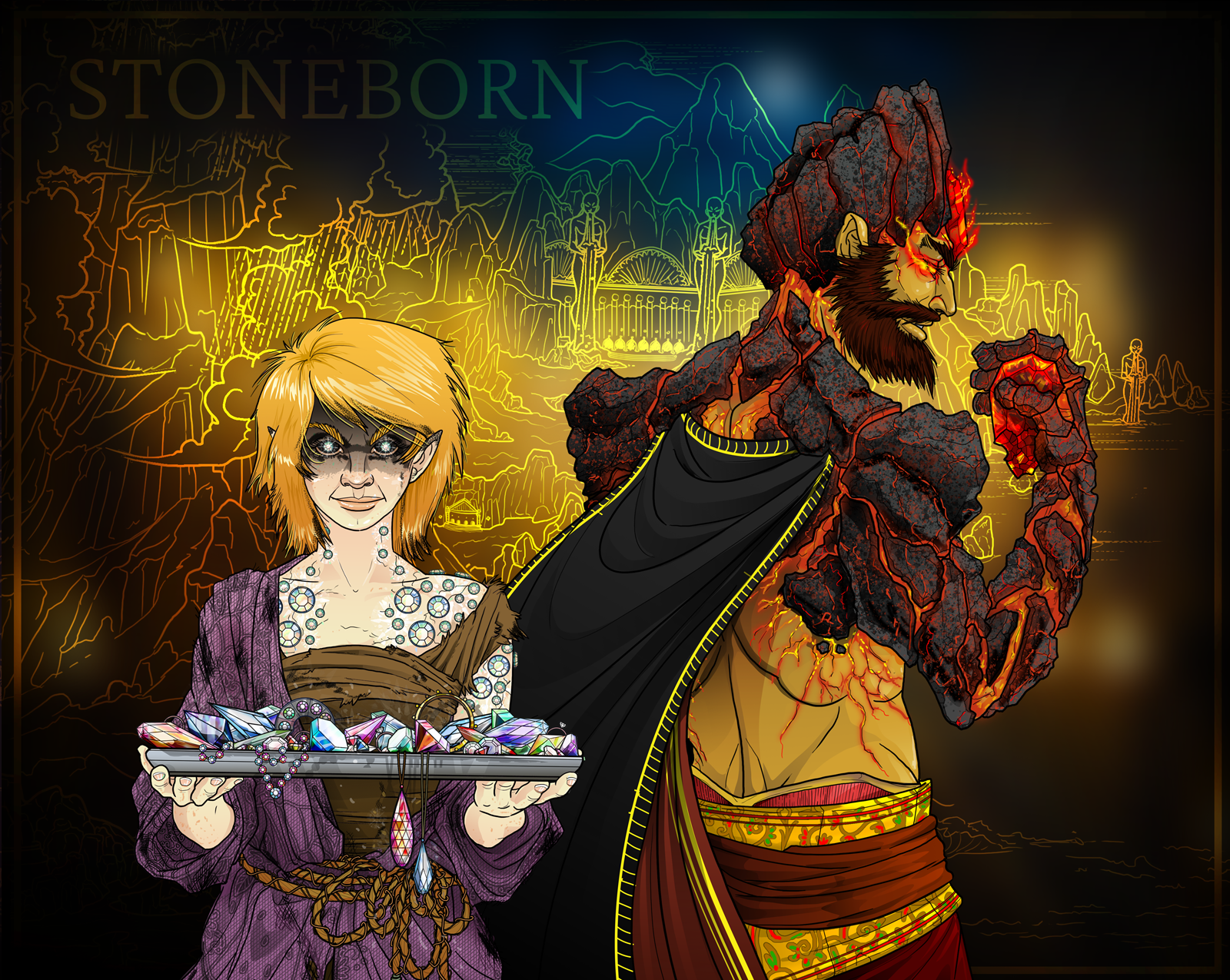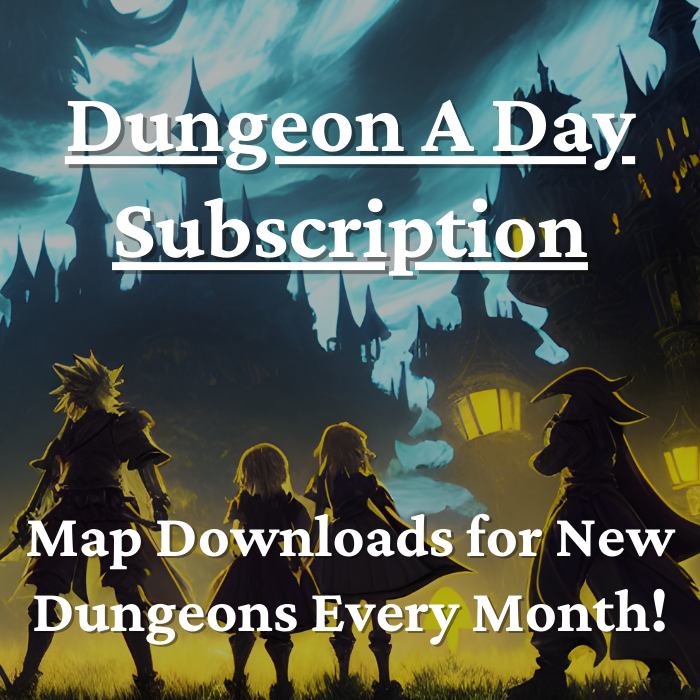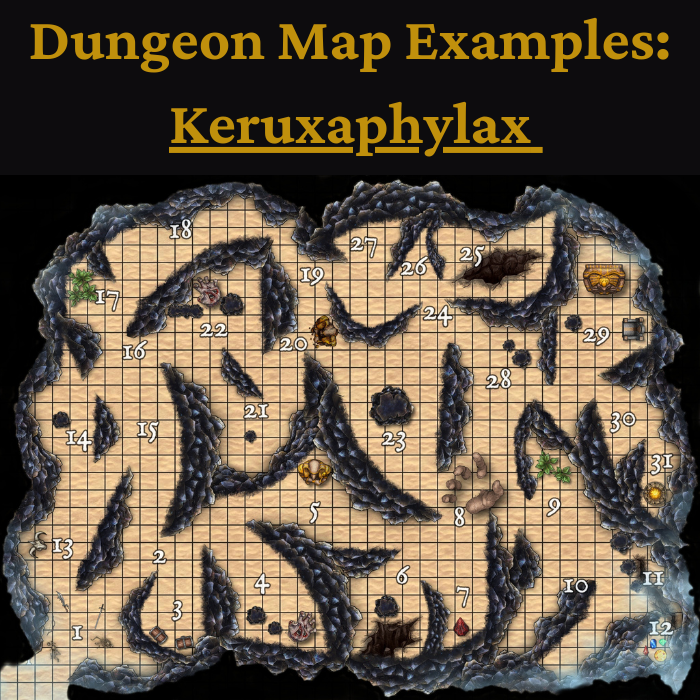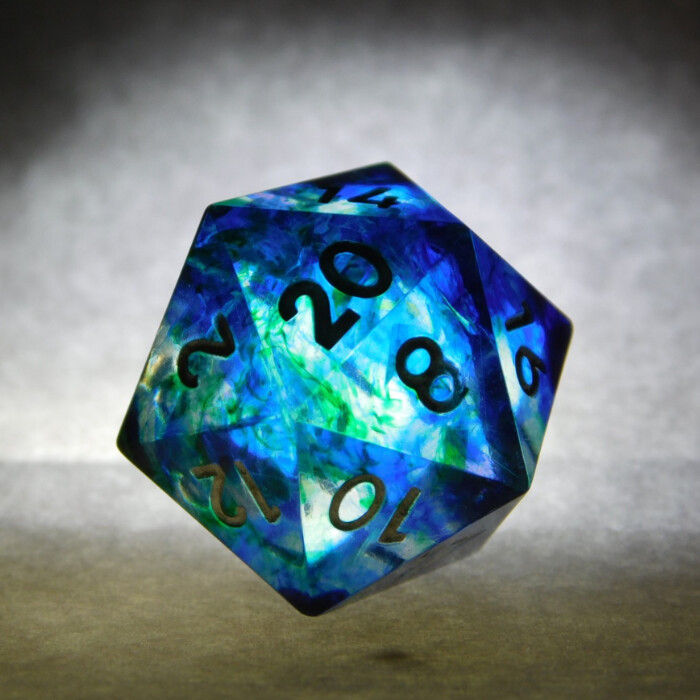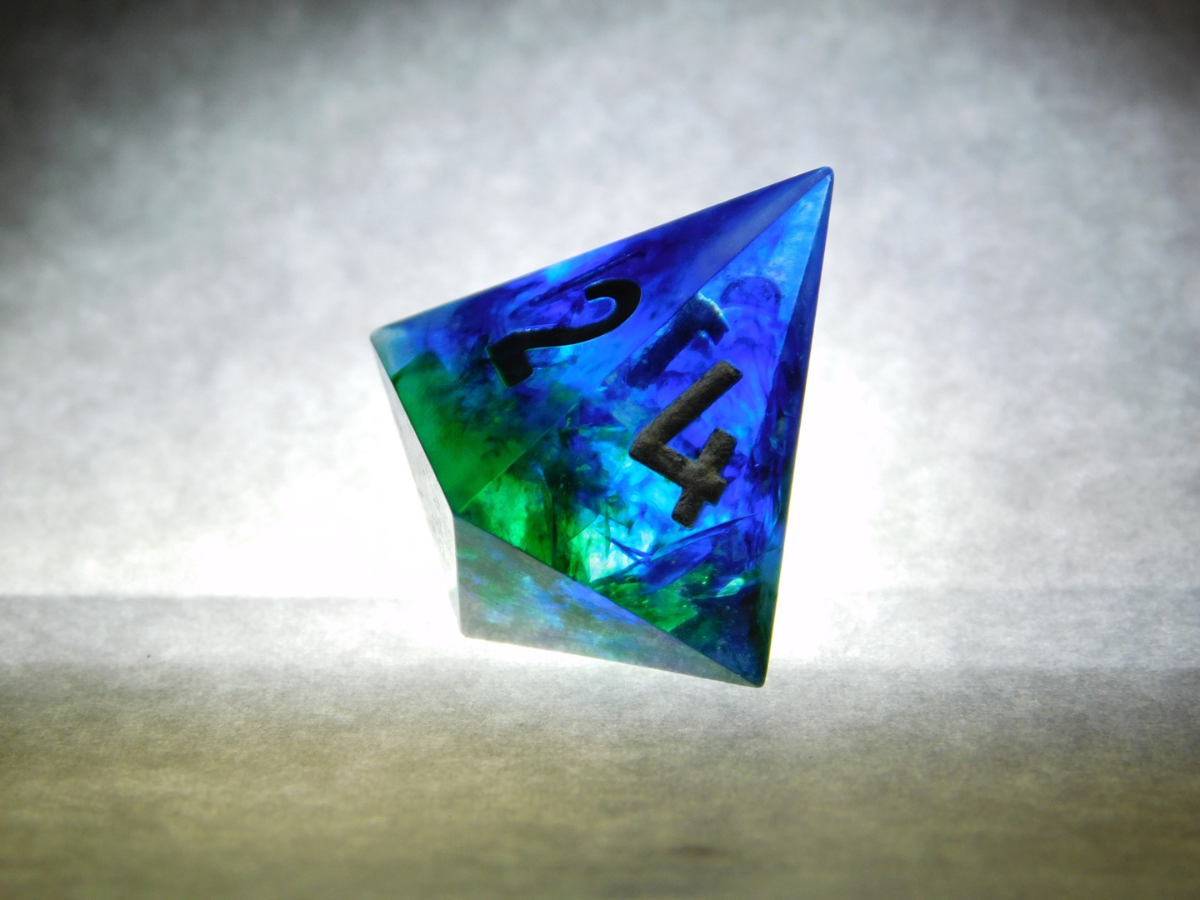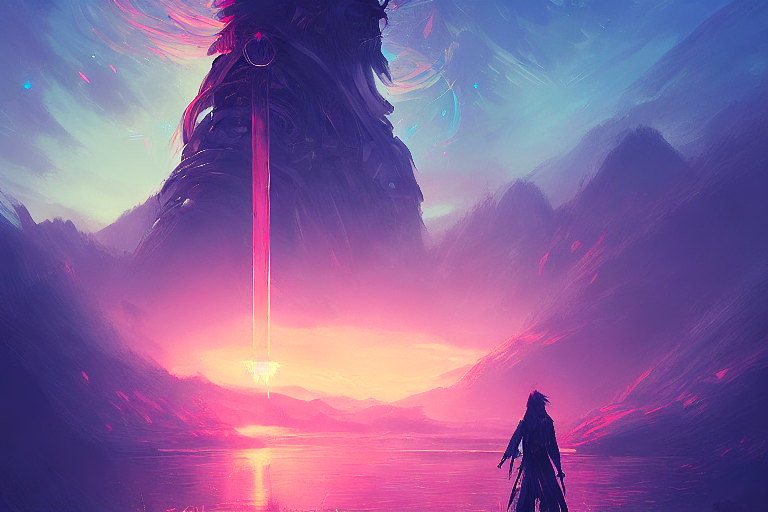Games Like DnD
There are many fantastic tabletop RPGs that are both under-played and underrated. These are games like DnD that many people don't even know about. Just because Dungeons and Dragons is a well-known TTRPG doesn't mean that it's the best for you and your gaming group!
Dungeons and Dragons is sometimes synonymous with "tabletop roleplaying,” but the two are actually different. You may hear someone saying that they want to play DnD, but that might be because DnD’s the only TTRPG (tabletop RPG) that they even know about. There are, in fact, many games like DnD. And honestly, as an experienced tabletop roleplayer myself, I can say that there are many TTRPGs that are far easier to learn and get into.
DnD provides a great tabletop gaming experience – don’t get me wrong. But if you’ve already played DnD for some time, or you’re simply interested in what else is out there, I can assure you that there are many, many underrated and under-played tabletop RPGs. Games that once you start playing, you may just fall in love with.
So, if you're looking for games like DnD – but that aren’t DnD – you’ve come to the right place.
New Games
Some of the newest games like DnD that improve on key aspects of TTRPG gaming. Whether you're new to playing tabletop RPGS, or you've already played many of the TTRPGs below, this should be your starting point:
BaG (Basic and Generic) Roleplaying Game
Starset RPG: The Great Dimming
Well-Known Games
I've created an entire guide on games like DnD that you can reference. Each of these game articles comes with its own individual review so you can find the game that's perfect for your group. These are all games that have been around for years, with a devoted fan-base, and they're also listed in the order of how often I recommend them:
Referencing
If you want a reference point to see all of these famous TTRPGs listed together, take a look at the following page to see the overall reviews, along with my individual review for DnD:
The best way to start with new games like DnD is just to read reviews or even talk to someone at your local gaming store. Each TTRPG comes with its own unique play style, and often, setting. Because TTRPGs do often have rather large rulebooks and take an investment of time to learn, it's worth the energy to do some digging upfront.
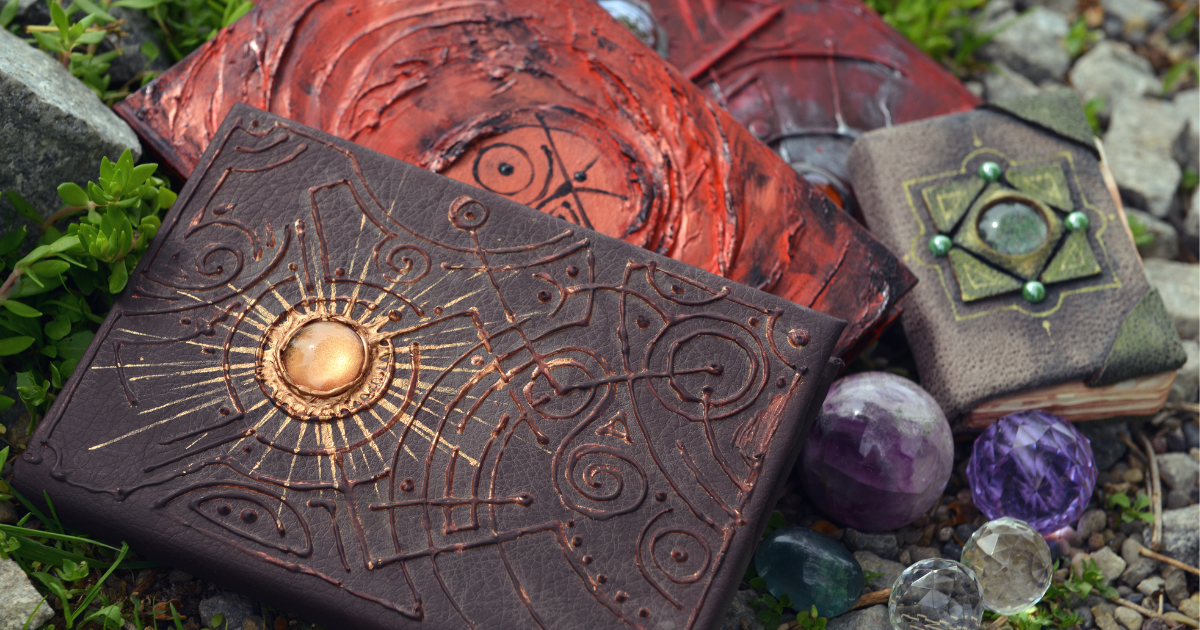
Games Like DnD – Summaries
You can take a look at the in-depth individual articles/ pages I have for each of the following games like DnD. However, if you just want a quick summary on each game, I’ve provided them, below.
You can also read further down into this article to learn more about what you may consider looking for in TTRPGs so you can sort out the good from the bad, for yourself.
Eternity TTRPG
Yes, I take every opportunity possible to shamelessly self-promote the tabletop RPG I’ve created. Eternity TTRPG is an easy-to-learn game with immense depth. The key is that you can learn the game very quickly (in about 5-minutes), but if you’re someone who loves immersive gaming, you can dive into more complex pieces of the game over time.
Here’s what you can expect with Eternity TTRPG:
- Multiple Game Masters (“Game Designers”). Everyone at the table can help build the game world and story.
- Guide for world and story creation. Some game lore is provided, but there are also steps in place to create your own.
- Highly tactical and balanced combat. There are 30 classes to pick and choose from, with a unique playstyle to each.
- Tons of uptime and very fast gameplay. Players are almost never waiting for “their turn” for more 30-seconds at a time.
BaG (Basic and Generic) Roleplaying Game
BaG was a successfully-launched Kickstarter game. It’s an RPG that can also be learned in phases, with more advanced segments of the game revealed after your gaming group has already mastered the basics. BaG is an extremely free-form game that fits multiple genres, and allows for tons of player input into their own character.
Here’s what you can expect with BaG:
- Highly-flexible character creation and customization. BaG is a classless tabletop RPG.
- Very simple dice resolution system that also creates high amounts of drama. Players must roll beneath target values, but still above “circumstance” numbers.
- Extremely affordable game manual that is extremely small (in comparison to most other games) and easy to learn.
Cypher System
Cypher System is probably the least well-known tabletop RPG of all time that should be rampantly famous. Basically, Cypher System plays just as well as DnD, and has some of the absolute best supplemental lore books in the entire industry. Cypher System is created by Monte Cook, who is a superstar in the world of tabletop gaming.
Here’s what you can expect with Cypher System:
- 3 core stats for character creation that lead to a wide array of possible character options. It’s both a simple, streamlined mechanic, but also highly immersive.
- “Cyphers” that are regularly awarded to players give them all kinds of interesting and dynamic options within the game. Think of these like specialized magic items.
- Amazing art, quick gameplay, and tons of player options.
Pathfinder RPG
Pathfinder RPG looks a lot like DnD. The reason is that during the DnD 4th Edition years, well... people didn’t really like the game. Hardcore DnD fans felt like the game was leaving its roots for a more video game-like approach. During that time, Pathfinder RPG came in really as a DnD-true game to play, and it’s stuck around ever since.
Here’s what you can expect with Pathfinder RPG:
- Pathfinder RPG plays a lot like DnD 5th Edition (and editions of DnD prior to 4th Edition).
- Very similar mechanics, races, classes, looks, layout and pretty much everything else... to DnD.
- Some unique variations on races, classes, spells, items, and play to DnD.
Honestly though, Pathfinder RPG is pretty much just DnD. At this point, it’s like Coke vs. Pepsi. Everyone has their preference. But they’re both pretty much the same when you think about comparing them to other games.
Marvel Universe RPG
Marvel Universe RPG is a newer TTRPG based on a very longstanding comic tradition. Especially with the rise and vast popularity of the Marvel movies over the last 15-years or more, this game has been met with excitement. Marvel Universe is a very good representation of the Marvel franchise and an overall fun game.
Here’s what you can expect with Marvel Universe RPG:
- Gameplay that both reminds you of Marvel movies and Marvel comic books.
- Fairly simple gameplay that still feels exciting. You basically have energy points that you can spend on your turn or others’ to complete actions in each “comic panel.”
- Options in the rules to either play a traditional RPG campaign, or to “Brawl,” allowing you and friends to have your favorite superheroes or supervillains face off.
Shadowrun
Shadowrun is currently in its 6th Edition and has been around for a long time. Its history goes back almost as far as DnD. If you’re looking for a game like DnD that’s set in a more futuristic setting, Shadowrun is basically that game. It features very familiar mechanics with a cyberpunk twist.
Here’s what you can expect with Shadowrun:
- Immersive and expansive lore provided in the core rulebook about a future where magic, technology, and mega-corporations collide.
- Similar gameplay and mechanics to DnD, making it easy to pick up for experienced gamers.
- Class based RPG that’s entirely based around futuristic professions and roles withing a dangerous, cyberpunk world.
Dungeon A Day
I am excited to share with you that the Eternity TTRPG site is now home to: Dungeon A Day.
Need some fresh ideas to use with your Eternity TTRPG game? Dungeon A Day works with any tabletop RPG system.
Check back each day for a brand new dungeon room. Over time, individual rooms add up, creating a massive, mega-dungeon.
Savage Worlds
Savage Worlds created a stir when it first came out about 15-years ago. It’s one of the TTRPGs to come out in the last couple decades that’s truly unique. The game is very easy-to-learn and allows for a great deal of character customization. Similar to BaG (above), it’s both a genre-free and classless RPG.
Here’s what you can expect with Savage Worlds:
- Very small rulebook that allows you to create worlds and convey stories in any setting and genre, for virtually any player group.
- Simple game mechanics (and math!) that keep’s the group’s focus on the actual game, and not on mechanics.
- Because the core rulebook is so slim, you’ll probably want to get one of the genre-specific supplemental books, for any kind of extended play.
Warhammer Fantasy Roleplay
I personally love Warhammer Fantasy Roleplay – but more in idea than in practicality. What I mean is that though Warhammer is an amazing tabletop RPG, and really a work of art, I’d rather do single gaming sessions with this system than an entire RPG campaign. However, if you’re a Warhammer fan already, this may be the perfect game for you.
Here’s what you can expect with Warhammer Fantasy Roleplay:
- A game built on the incredibly rich lore of the Warhammer universe.
- Very gritty and realistic gameplay. For example, characters don’t just take damage in combat, they actually take wounds that may be long-term or lifelong.
- An incredible number of classes to choose from, allowing players the opportunity to create characters entirely unique to them.
Starset RPG: The Great Dimming
Starset RPG: The Great Dimming is another new TTRPG created by Josiah Mork from Hoodwink Games. It's another Kickstarted game that's gained some promising success, and it's a game that I personally enjoy quite a bit.
Here’s what you can expect with Starset RPG:
- A grimdark TTRPG set into the distant future, where life is always a hairsbreadth away from being extinguished. Roleplay as a character exploring the vast reaches of space, or interact with the complex politics of a multi-planet-inhabited future.
- Smooth gameplay that features light rules, and incredible built-in backstory generation when building your character.
- Super easy game to pick up, learn, and play. Most of the game's (optional) complexity comes from its provided (optional) lore.
Star Wars Tabletop RPG
If you love Star Wars, you’ve probably already played one of the many Star Wars Tabletop RPGs out there. Over the years, there have been many, many attempts at creating Star Wars TTRPGs. Some of them are great, while others are mediocre. However, they’re all fun – especially for those who are hardcore Star Wars fans.
Here’s what you can expect with the Star Wars Tabletop RPG:
- You can play a Jedi or Sith. Really, this is the bread and butter of the game. Every other class and profession are interesting, but Jedi and Sith can simply “do” way more cool things.
- Lore and gameplay that are extremely true to the Star Wars universe. When you play this game, you really feel like you’re in one of the Star Wars stories.
- Since this is Star Wars we’re talking about, you’ll always be able to easily find a gaming group to play with.
Call of Cthulhu RPG
Call of Cthulhu RPG is based on the highly popular work of H.P. Lovecraft. If you’ve never read H.P Lovecraft, he’s basically the grandfather of modern horror stories, novels, and movies. His stories are both terrifying (in their own unique way) and mysterious. They often talk about a land of incomprehensible madness and terror, from which Cthulhu was born (or that he perhaps created).
Here’s what you can expect with Call of Cthulhu RPG:
- A game based on investigators who explore a world of chaos that’s entering into our own world, tearing the door between them apart at the seams.
- A game where discovery is more important than combat. A world where the players, as normal humans, cannot possibly contend with the dangers that they regularly face.
- Immense volumes of H.P. Lovecraft lore from which to draw for inspiration in your games.
Play Easily Now (PEN) Roleplaying Game
Play Easily Now (PEN) Roleplaying Game is a new Kickstarter TTRPG from Josiah Mork with Hoodwink Games. It's an RPG that combines multi-genre, with truly easy-to-learn mechanics, and immense amounts of character-building options. As effectively the 2nd Edition of BaG RPG (also shown on this page), PEN expands upon existing great ideas while also presenting some new ones.
Here’s what you can expect with PEN RPG:
- The same highly-flexible character creation and customization from BaG.
- A "Degrees of Success" resolution system for skill checks that "chains together" multiple checks' results. What players choose to do in each stage of an adventure may very well affect the next.
- A rulebook that's under 100-pages, and is split into multiple "Modules," making the game extremely easy to learn, and accessible even for people new to TTRPGs.
Zweihander
Zweihander has a huge cult following. It’s the type of game that you either absolutely love or that you really don’t like very much at all. Zweihander was created to bring tabletop RPGs a game that was both extremely realistic in play, and that also encourages gamers to immersively roleplay their characters.
Here’s what you can expect with Zweihander:
- Large numbers of tables to make character creation more randomized (if you’d like) and immersive.
- Expansive, Viking lore that also features a few hints of druidic magic.
- Extremely realistic gameplay. If you follow the rules as-written, you’ll track carrying capacity, food, supplies, wounds, environmental effects, and more.
Vampire: the Masquerade
If you’re a big fan of vampire lore, Vampire: the Masquerade may just be the game for you. Think of roleplaying a character in the “Underworld” series, for example, or even in “Twilight.” Vampire covers every aspect of vampire life, vampire lore, and vampire interests that you could probably possibly imagine.
Here’s what you can expect with Vampire the Masquerade:
- A dark world of vampire myths and legend, where every player is either a vampire (most commonly) or actively involved in vampire affairs.
- Game rules that work equally well for tabletop gaming or for LARP (live action roleplay).
- Gameplay that’s 100% focused on roleplaying. Your experience of being a vampire is more important than your character’s stats or abilities.
Legend of the Five Rings
Legend of the Five Rings RPG is a “game of samurai drama.” It’s a game that fantasizes and emphasizes Asian culture in a context of samurai warfare and daily life. Interestingly, the Legend of the Five Rings card game has actually become more popular nowadays than the roleplay game, though the two share commonalities.
Here’s what you can expect with Legend of the Five Rings:
- Samurai duels and warfare as a primary pillar of story building and conflict.
- Use of the four elements (fire, water, wind, earth) and samurai glory (which fits into their clan and school) to take actions and gain bonuses.
- Options to try out the card game as either a supplement to the storytelling in your campaign, or to switch altogether if you like the card game’s play more.
Dungeon World
Dungeon World is carried at most gaming stores, so it’s a very easy tabletop RPG to find and start playing if this one’s on your radar. It’s a very simple game that takes the fundamental pieces of DnD and simplifies them. Instead of spending lots of time reviewing writing and tables in the rules, you simply keep the story moving forward.
Here’s what you can expect with Dungeon World:
- A game that’s something like a rules-light version of DnD. It features similar races, classes, and even gameplay.
- Players respond to the game master’s direction with a simple skill check. If it succeeds, then it goes immediately back to the game master, who provides the next step that results in another skill check.
- Fast play that emphasizes the story, but lacks in combat and other engaging mechanics often found in other games.
Ars Magica
Ars Magica is another TTRPG that’s history goes quite a way back, to around the same time as when DnD first came about. Ars Magica is a highly detail-oriented game based around being a wizard. The game contains large amounts of lore and rules for all aspects of wizarding life, such as spells (of course), familiars, schools of magic, and more.
Here’s what you can expect with Ars Magica:
- More information than you can probably ever get through concerning wizarding life and lore.
- Very detailed rules that does slow down gameplay, but also provides very immersive experiences.
- You may very well need to create homebrew rules that make gameplay a little easier – especially for new players.
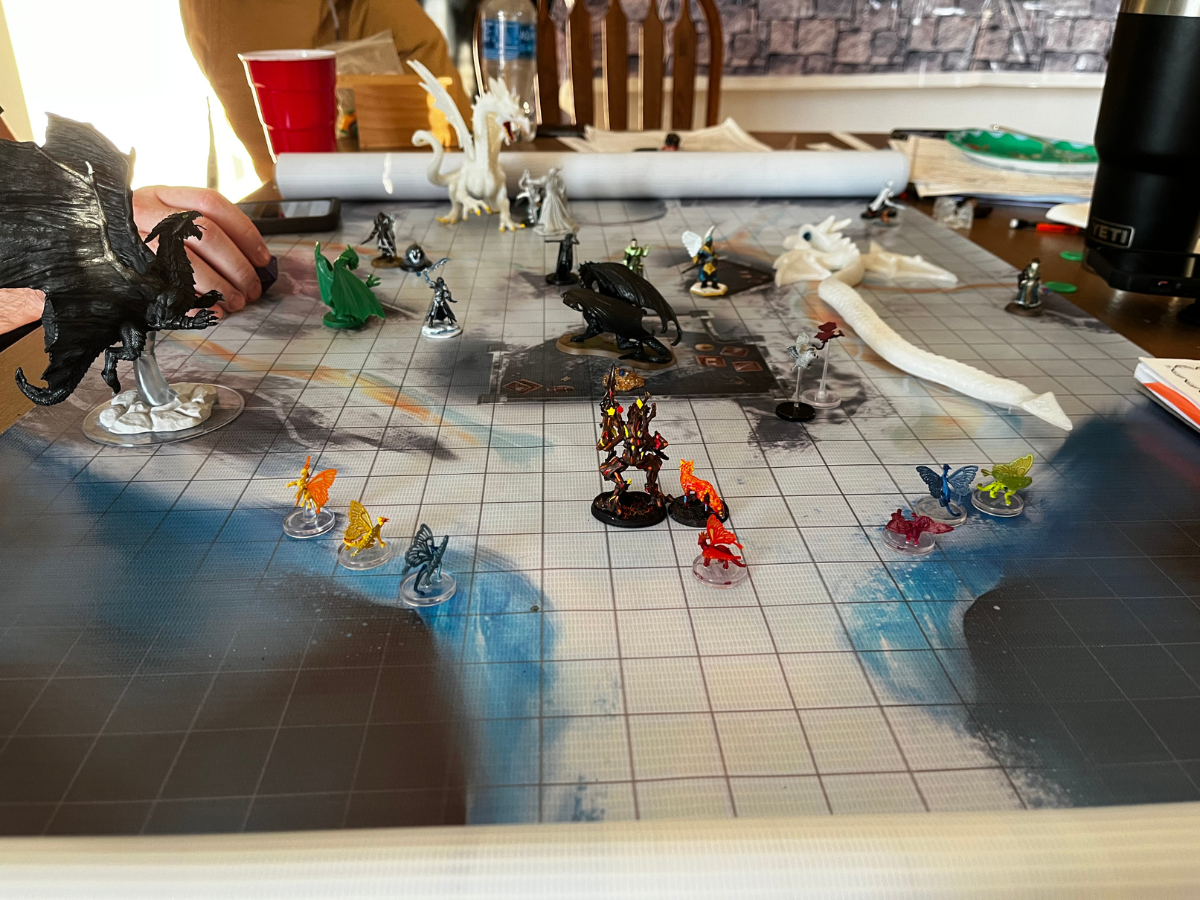
Whatever game you're playing, there's something magical about tabletop RPGs.
Know What to Look for in New Games Like DnD
When you’re looking for new games like DnD to play, there are a few very important things to consider. You don’t want to pick up a game that’s extremely difficult to learn, for example, or that has so many rules that the game’s flow slows down. Unlike video games, there’s more investment required to learn tabletop games, so it’s important to know what you’re getting into with any new game.
Use the following ideas as starting points when you’re looking at reviews of tabletop RPGs, or when you’re talking with someone at your local gaming store. In many cases, you can also find PDFs of games you want to try out that are either free, or very inexpensive.
In fact, many games like DnD have actual “starter set versions” of the game where you can see 10% of the rulebook or so to get a feel if the game’s right for you. Try those out as a way to test the waters with new games like DnD until you find the game that you really want to play.
Game Complexity
The single biggest thing I always try to find out when scoping out a new TTRPG is whether or not the game is complex from the very beginning. Some tabletop RPGs are notorious for having massive rulebooks, requiring players to read through hundreds of pages before the game even begins to make sense.
I’m not a big fan of that kind of game, as you might imagine. Instead, I look for games that I can easily learn, myself, and easily teach to new players. After all, one of the greatest joys of tabletop RPGs is gaming with others. If it’s hard getting other people to game with me, then the idea simply isn’t going to fly.
It’s also worth noting that I love games that feature great amounts of depth. The difference between a game with depth and a game that’s just outright complex is that games with depth are still easy to learn on the frontend. Then, once you’ve learned the basics, they slowly introduce you to the game’s deeper concepts and possibilities.
Complex Games
When it comes to complex games, it’s not uncommon for the entire first session of a new campaign to be taken up building a new character. Then, it takes the entire second session of the campaign for all the players just to learn the mechanics of how to actually play the game. This is definitely not the ideal situation. What you really want is an easy-to-learn game that can be played right away.
To be honest, DnD really does fit the “complex game” category. It is without a doubt, a very difficult game to learn. The reason that people play DnD despite it being so complex is because most groups have someone who already knows the rules well. It is a popular game, after all. So, the group's most experienced players (often including the dungeon master) can help other players learn the game, faster, with less headaches involved.
Games with Depth
Games with depth provide players with all of the complex possibilities of any other game, but introduce the game in stages. Instead of needing to read through hundreds of pages to get started, games with depth might have players read 20-pages or so. Instead of character creation taking an hour or more, it can be done within 5-minutes.
It actually is sort of a modern idea in tabletop RPG design, allowing players to learn the game in stages. Games with depth, however, often lead to much more sustainable campaigns, where players want to keep engaged with the story every gaming session. So long as the game continues to open up layer after layer of new material, and does in fact provide players with a vast number of options for play, this approach is often far superior to traditional RPGs.
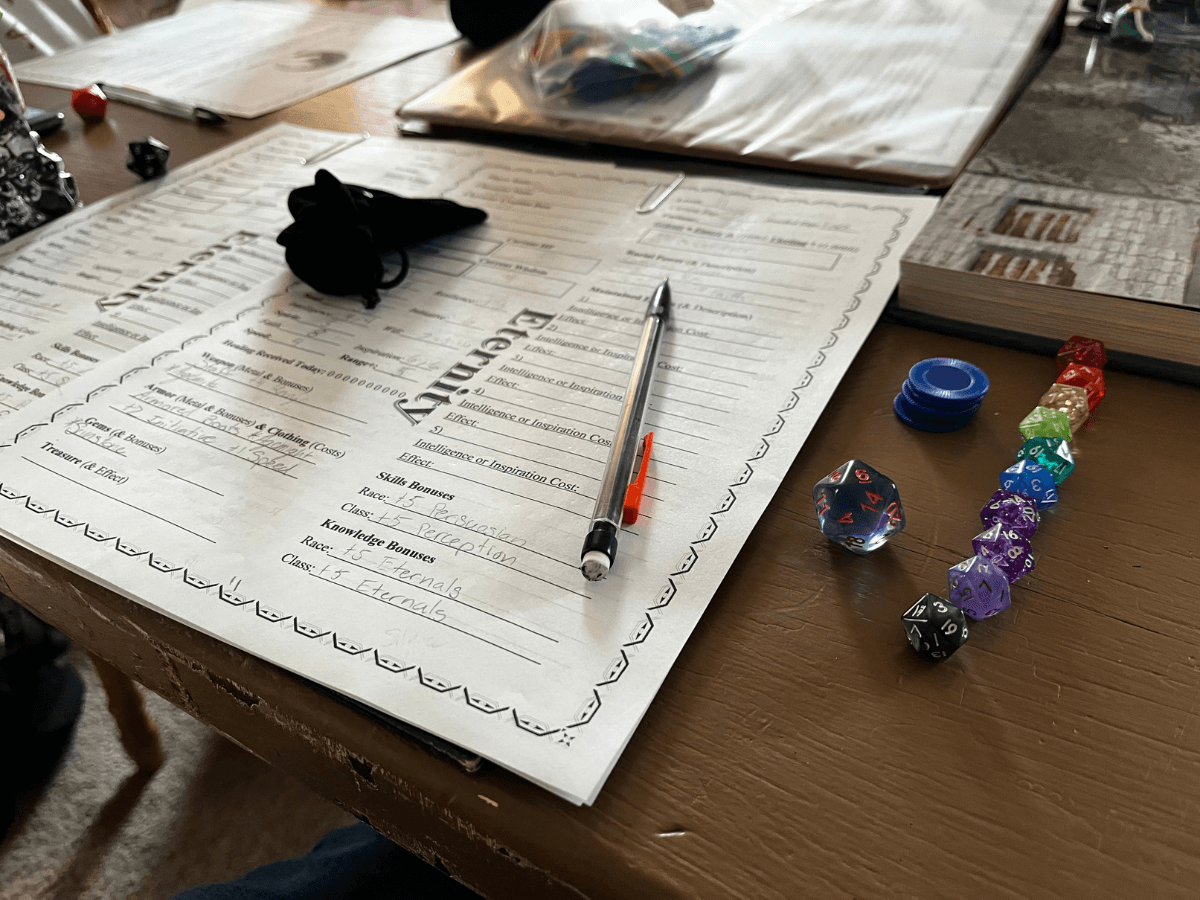
The best TTRPGs have immense depth for players to explore, but are relatively easy to pick up and learn.
Player Uptime
One big reason that more people don’t play tabletop RPGs is that for the most part, they have terrible player uptime. What is player uptime, you ask? It’s the amount of time that players at the table actually spend playing the game.
Have you ever experienced playing in a DnD session where the dungeon master and one other player are going back-and-forth in a complicated roleplay scene? What about when you’re fighting in a big battle and – though it is a high-intensity fight that’s happening – players and the dungeon master are taking forever to decide what they want to do?
Well, if so, you’ve been the victim of terrible player uptime. Unfortunately, many tabletop RPGs simply aren’t very good at getting multiple players involved at any given time. There are, of course, lots of great ways that dungeon masters can increase player uptime (often by ignoring or modifying lots of built-in game rules), but there aren’t many games that prioritize frequent player engagement.
Modern TTRPGs (like Eternity TTRPG, BaG, and Multidimensional Dungeons) do a much better job at prioritizing player uptime, keeping more focus on player actions and involvement, and less on rules.
Dungeon Master or GmLess RPG?
One very interesting way to increase player uptime is to have multiple dungeon masters for your game. In Eternity TTRPG, for example, every player at the table may (if they so choose) helps develop the game world and storyline for the campaign. The result is that players have tons of say into what’s happening at the macro level and at the individual level of the game, all while roleplaying their own characters.
Giving players say into the game world, overarching story, and their own character provides lots and player uptime. It’s very rare in “GmLess” or multiple game master systems where players are sitting at the table, scrolling through their social media feed. Instead, they’re actively paying attention to what other players are saying and contributing, so they know what’s happening in the story when it comes to their turn.
Note that you can play traditional tabletop games like DnD with multiple dungeon/ game masters. There’s definitely an art to it, but the key is to keep everyone at the table on the same page. If everyone can to use their share of the dungeon master power to keep the story on the same lines of seriousness, gravity, genre, etc. then it’s relatively easy for a group to learn to play DnD with multiple world/ storyline creators involved.
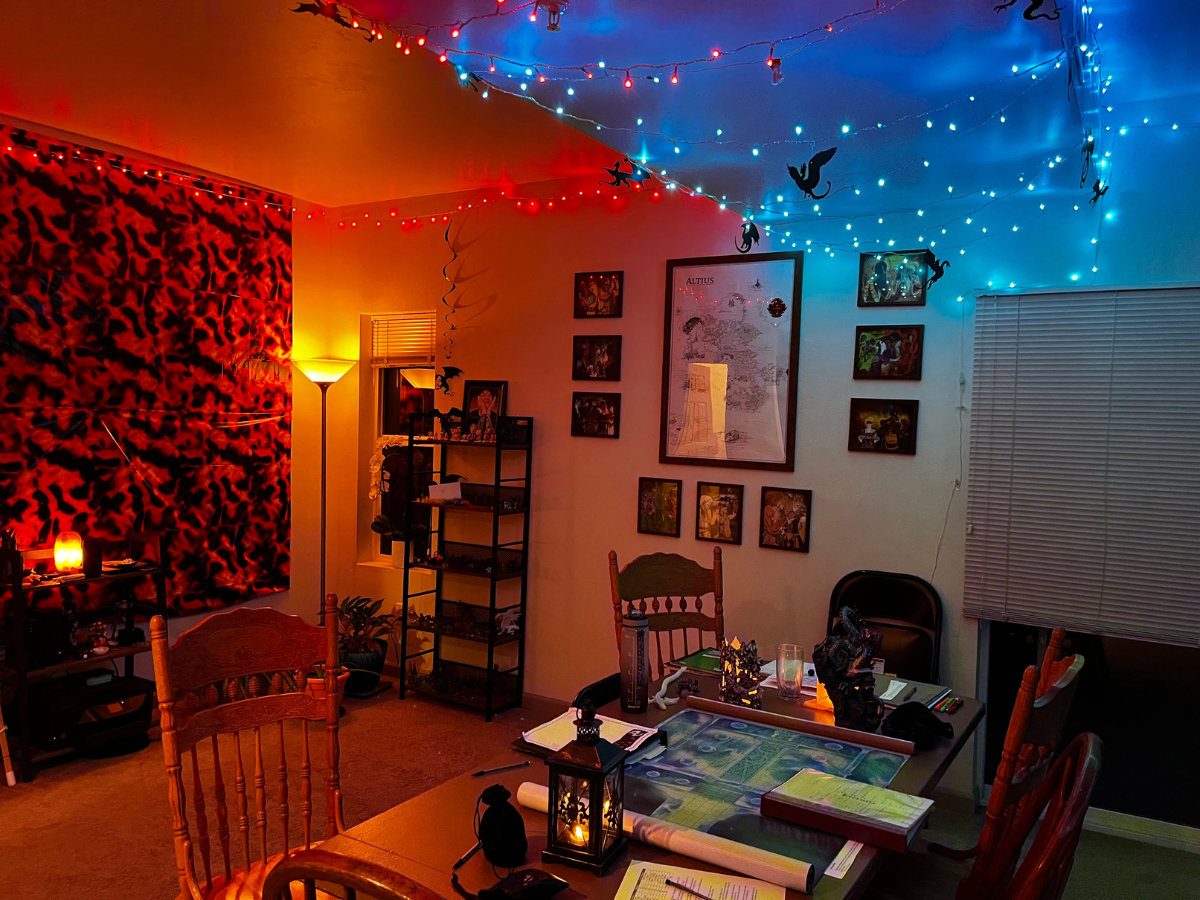
The setup from one of the recent games my group played of Eternity TTRPG. We sometimes hold all-day events, and decorate to create an exciting atmosphere for gaming.
Game Lore
In my experience, games that come with built-in lore are easier to sustain for long campaigns. The reason is that if, as a dungeon master (or dungeon masters – see above), you begin running out of ideas for your game, you can rely on lore for inspiration.
Usually, dungeon masters come prepared with a few really good ideas for their campaign, which can provide possibly a couple months of really great gameplay. However, it’s very common for dungeon masters to start running out of ideas once that initial inspiration has played out. It’s usually in these phases of the campaign where the gaming groups begin to fall apart.
Therefore, if you can find a game that either gives you built-in lore, or that at least has supplemental material you can purchase, your group stands a far better chance of successfully creating a longstanding campaign.
Ongoing Campaigns
Some dungeon masters are naturally good at world building, plot creation, and storytelling. For many others, it takes a lot of work and DM inspirational material to keep a campaign going. Look for games that have adventures and campaigns you can purchase, as supplements to the core rulebook. Those adventure modules can turn any new dungeon master into someone capable of running an entire gaming group for months (or years) on end.
To help you with your ongoing campaigns, I also have a number of articles that provide adventure and campaign ideas for DnD or any other TTRPG. I’ve often used these very ideas for my own games with Eternity TTRPG:
- How to Start a DnD Campaign
- DnD Campaign Ideas
- DnD Quest Ideas
- DnD One Shots
- DnD Character Ideas
- D&D Christmas
- TPK DnD
- Single Player DnD
- Dungeon Master Tools
- DnD Campaign Planner
Genre
Before purchasing a new game like DnD, it’s also worth finding out exactly what genre the game fits into. If the game comes with built-in lore, it’s certain to fit one or more of the following categories:
- Fantasy
- Cyberpunk
- Horror
- Specific culture(s)
- Superheroes
- Gothic
- Steampunk
- Space opera
- High Fantasy
- Modern
- Grim and perilous
Pretty much any tabletop RPG can be adapted to the genre of your choosing, but it’s often far easier to choose a game like DnD that fits what you already have in mind. Playing Shadowrun in a high fantasy setting, for example, would be really difficult – it would involve a lot of adjustments on the part of the players and dungeon master.
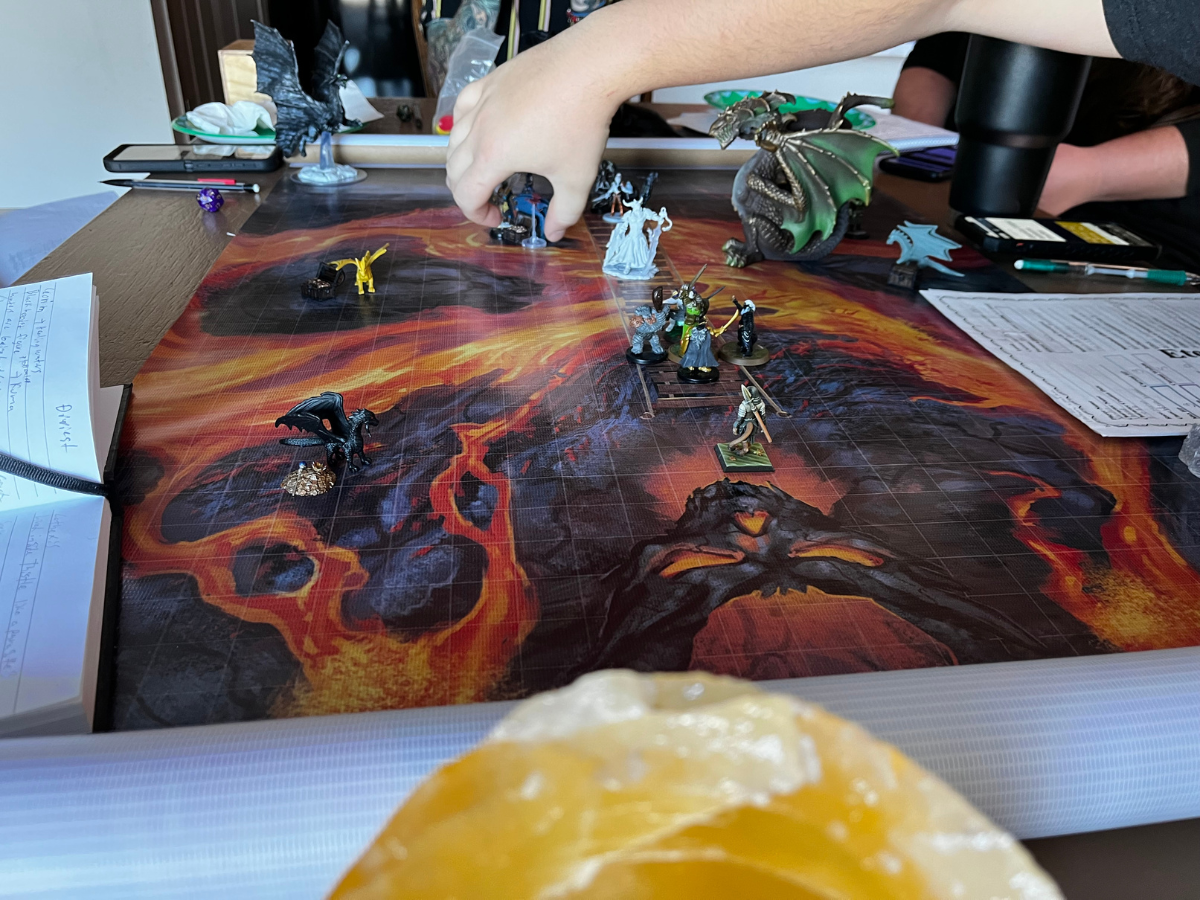
One great way to gather inspiration for a game is by playing on a battle mat with interesting art and background. A map like this can provide all kinds of ideas for your next adventure.
Class Based RPG or Classless RPG?
If you haven’t played both types of RPGs before, it can be fun experimenting with them. In a nutshell, a class based RPG is like DnD (fighter, barbarian, wizard, rogue, etc.). A classless RPG is like Skyrim, where instead of specific classes you have skill trees from which you can pick and choose.
If you don’t have a preference here, I would say it’s worth trying both kinds of games out at least once. What I’ve often seen with classless RPGs is that by the end of the campaign, pretty much every person’s character is more or less the same as everyone else’s. At some point, they’ve all acquired enough skill points to get the best skills from the end of every tree. So, even if they started out the game with very different builds, that changes eventually.
In comparison though, class-based games can sometimes feel stale, or like you’re playing the same campaign as last year, just with each player switching up who’s filling what role. The best class based RPGs have character classes that can be highly individualized or modified so that no two warriors or wizards ever play the same.
Combat Balance and Engagement
It’s often difficult to determine before actually playing a game, but does the game you’re looking at provide balanced and engaging combat? Most people play tabletop RPGs with fierce, high-intensity action in mind. People literally play Dungeons and Dragons to dive into monster-filled dungeons, slay dragons, and acquire their stuff (some might call them treasures).
Surprisingly, however, many tabletop RPGs have pretty slow-paced or even downright dull combat systems. Or, they have highly realistic combat systems that require a lot of dice rolling and math. To me, these are not good games to play for longstanding campaigns. Combat should be exciting, fast-paced, and dramatic.
Here’s some key ways to tell if a tabletop RPG is going to have a fun, high-intensity combat system:
Active Defense vs. Passive Defense
Active defense means players get to roll for their own defense rating. This factor contributes to player uptime, keeps players engaged, and gives players a sense of “doing something” when they’re attacked.
Very few games feature active defense. DnD, for example, has an Armor Class, which is a static value (a passive defense). If a player is attacked, they simply tell their attacker their AC, then hope they don’t get hit. It’s far more exciting in games like Eternity TTRPG, for example, when players get to roll a D20 when they’re attacked to try and dodge the attack.
Simple Math
This is a no-brainer, but TTRPGs that have complex math are often not as fun to play. This is actually another area where DnD is not the best game out there. Here’s a couple scenarios of how games play, so you can see the idea played out and decide for yourself which is better:
Scenario 1:
A player in DnD attacks an enemy. They roll to hit (D20 + 10). If they hit, they roll numerous dice of various kinds to deal damage (D10 + D6 +3). They add up the numbers, then reduce any of the target’s damage resistance (2). Then, they reduce that number from the target’s HP (63 – 17). Ok, turn’s done.
Scenario 2:
A player in Eternity TTRPG attacks an enemy. They roll to hit (D20 + 10). If they hit, the enemy takes 1damage (or a similar effect). Then, they reduce that number from the target’s HP (4 – 1). Ok, turn’s done.
Modern TTRPGs often have simpler math than traditional TTRPGs. In fact, looking at games like DnD (even 5th Edition), Ars Magica, Warhammer Fantasy Roleplay, and more – it seems as if the game was almost more loved the more complex it was.
It’s my theory that old-school tabletop RPGs were designed for an audience of hardcore gamers who wanted highly complex game systems to play with. Modern gamers, however, want systems that feature easy math, faster gameplay than traditional RPGs, still lots of options, but that can be learned in phases.
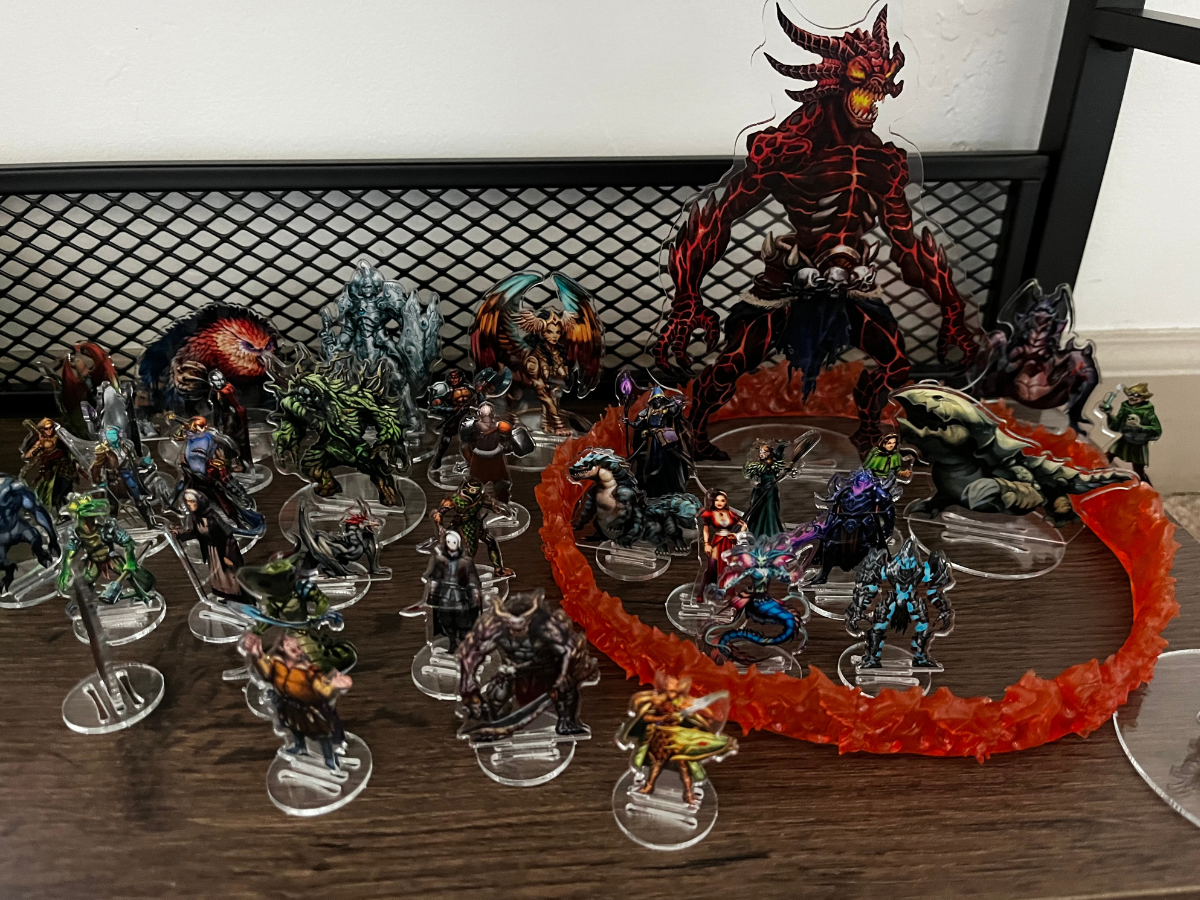
The only reason I have all these minis (and more besides these) is to vanquish them in combat. So, the game's combat system better be pretty amazing, too.
Dice Mechanics
Dice mechanics may seem like a very simple concept that might not even be worth your time considering, when looking for games like DnD, but they are important. How this plays out, to me, is that some games require you to roll lots of dice, and some don’t.
Games that require you to roll lots of dice at a time, like Star Wars RPG, DnD, and others, are often fun at first. You get to roll dice! But then, you have to add up all those dice, or count “hits,” and suddenly the game’s pacing slows way down.
Alternatively, you can find a game where you roll one or just a few dice, and you move through the resolution very quickly. Basically, dice mechanics either speed up the game, or they slow it down. I wouldn’t say, however, that for the most part, dice mechanics really add a whole ton of interesting elements to the game.
By the way, dice are extremely important for tabletop gaming. For that reason, I've created an entire article you can check out on the best D&D dice.
Wild Dice
Perhaps the one exception where rolling extra dice can add to the game’s drama and excitement are with wild dice (or exploding dice, as another variant). Games like Zweihander and Savage Worlds have wild dice, which allow players and dungeon masters to alter the game’s outcomes in critical moments. Wild dice can increase the feeling of player agency, and give players that “last chance” to succeed in difficult circumstances.
Not all great games have wild dice, so they’re definitely not a requirement. But if you find a game that you otherwise like, and it also has wild dice, you can probably take it as a positive sign that you’re on the right track.
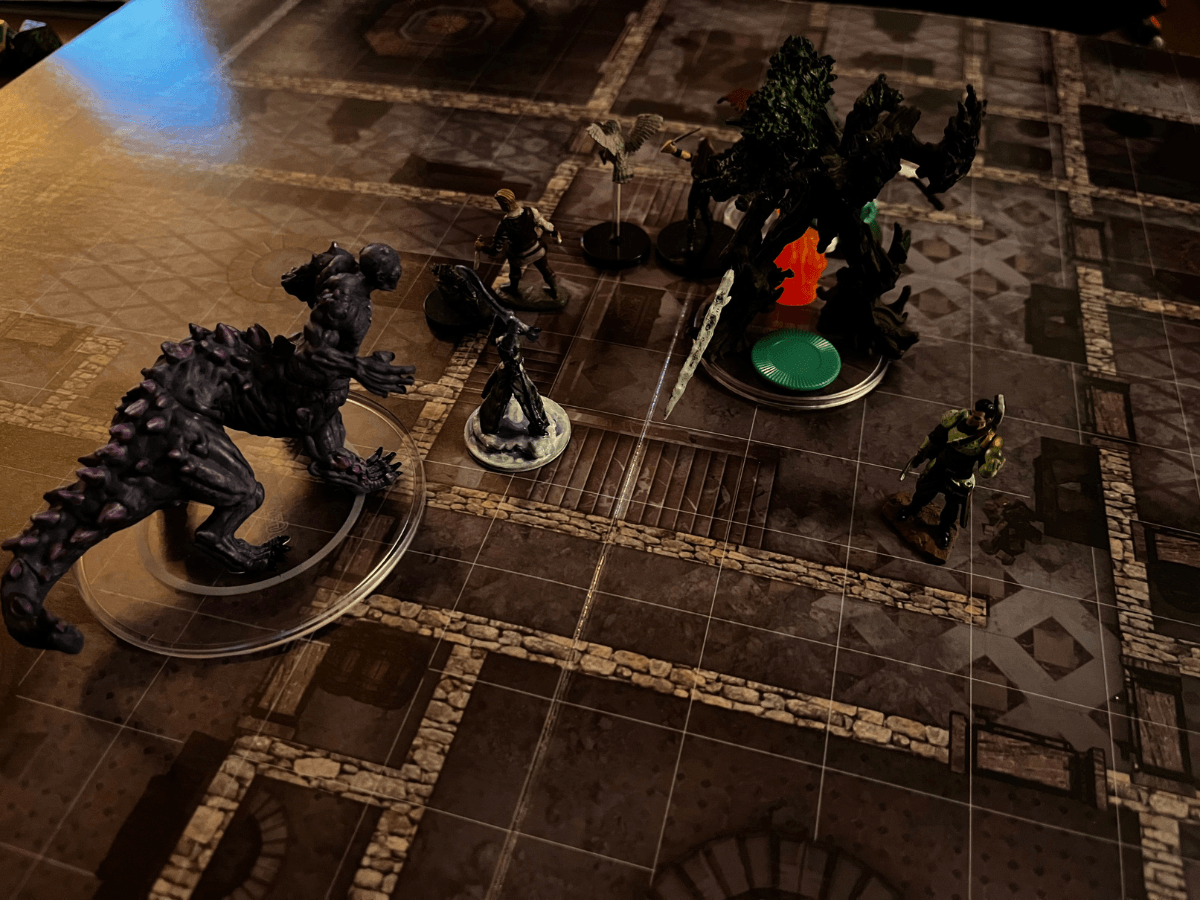
TTRPGs are a hobby meant to maximize fun in a fantasy world. So, the game should be fast-paced and exciting. No matter what game I'm playing, I basically don't want to remember that I'm playing "x game." I just want to play my group's game.
How Much Fun is the Game, Actually?
Tabletop RPGs are all about having fun. I know, amazing concept. Let me help you out on this one though: in the same way that most anime are really bad – or most anything in any genre are bad – most published tabletop RPGs are actually not that fun to play.
The best Tabletop RPGs have simple rules, feature simple math, and provide players with tremendous options for play that are introduced in parts. They have a cohesive design idea and they're willing to abandon everything in the rulebook in order to make sure that players have fun.
As a dungeon master, you are (thankfully) free to scrap any rule from any game that you don’t think contributes to the fun. However, it’s far better to find games like DnD that already have everything you want in place so that you can simply play the game as-is.
Games Like DnD: Eternity TTRPG
I’ve already mentioned Eternity TTRPG a few times, but if you’re looking for games like DnD, you have to try it out. I’ve played Eternity TTRPG with many players from conventions, at gaming stores, and in my local area. They all mention that Eternity TTRPG is easy to learn, flows well, and has tons of character options.
The number one thing people say that they like about Eternity TTRPG is that (once they get used to the idea) they get to contribute to the game world and storyline. Since Eternity has multiple game masters (called “game designers”), players are always involved in the game as uptime is very high between story-building and character roleplaying.
So, give Eternity TTRPG a try! I know you’re looking for new games like DnD. I can honestly say that you’ve found the right place.



